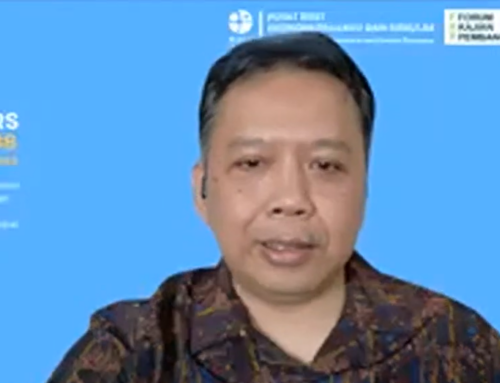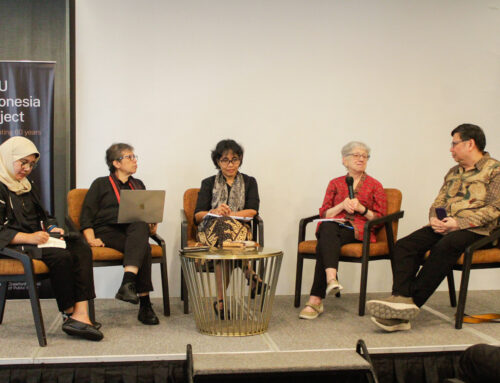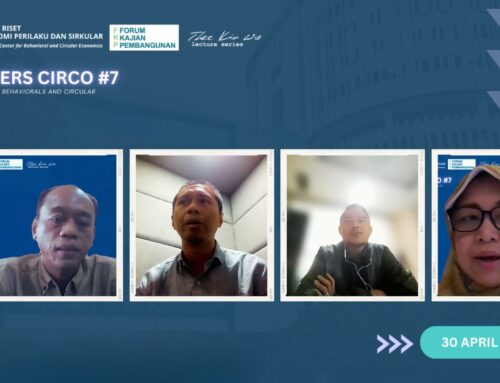The global tourism industry is hit hard by the COVID-19 pandemic. In Indonesia, the drop in trips from foreign and domestic tourists due to travel restrictions and physical distancing policy has caused a negative shock in tourist-related revenues with impacts across sectors and provinces. Using two scenarios based on a model by the Singapore University of Technology which forecasts Indonesia flattening the curve in August (Scenario I) or October (Scenario II), a study was conducted by a team of researchers from LPEM and Department of Economics, Faculty of Economics, Universitas Indonesia to estimate the impact of COVID-19 on the tourism-related sectors in Indonesia. M. Dian Revindo presented preliminary results of the research during the FKP Webinar on Tuesday, 12 May 2020.
Firstly, the researchers projected a large decline in trips, both by domestic and foreign tourist. In Scenario 1, there is a 48% decline in visits by domestic tourists and 61% decline in foreign tourist trips. In Scenario II, the drop is 65% by domestic tourists and 73% by foreign tourists. Secondly, foreign tourists are assumed to only travel two months after the pandemic in their country subsides. Both these projections in the drop in tourist visits translate to a loss of tourist spending by Rp298.5bn under Scenario I and Rp375.3bn under Scenario II. The largest spending items by both domestic and foreign tourists are for accommodation, food and beverages, souvenirs, fuel, and air transport services, and the businesses providing these services will be the hardest hit by the drop in tourist visits. In geographic terms, 62% of the reduction in domestic tourist spending will be felt by Jakarta, West Java, Central Java and East Java Provinces, while the reduction in foreign tourist spending will overwhelmingly felt by Bali Province (68%).
Using the inter-regional input-output analysis, the researchers estimated that the drop in tourist visits will cost the national economy Rp271tn based on Scenario I and Rp340tn based on Scenario II. This translated to a reduction of household income of Rp81tn (Scenario I) or Rp103tn (Scenario II). The impact to the labor market will also be huge, as tourism-related activities absorb about 10% of the national workforce in 2019. The next phase of the study will estimate the labor market impacts.
To cope with the shocks and the impacts of the COVID-19 pandemic, the researchers provided short-term (temporary measures during the pandemic) and medium-long-term policy recommendations. As the pandemic is still occurring, some fiscal stimulus such as electricity and water subsidies and credit restructuring from bank and multi-finance loans need to be provided. For the later, enforcement is required as there have been cases where loan payments were still being demanded by financial institutions. Regional governments can also consider deferral of property and motor vehicle tax.
Almost 100 people participated in the webinar – almost half were government and no-government researchers. During Q&A, researchers from Ministry of Finance and from the Provincial Government of East Nusa Tenggara posed questions regarding methodology as they are also doing modeling of the impacts of COVID-19 on tourism. There were also representatives from the regional governments who questioned the tax deferral policies as these are sources of income for the regional government and if taken away, will impair their ability to provide public services.
For the complete presentation and Q&A session, please refer to the video and materials linked in the sidebar.





